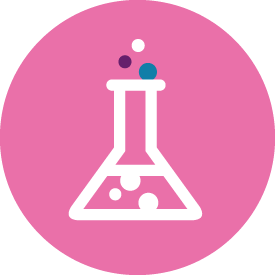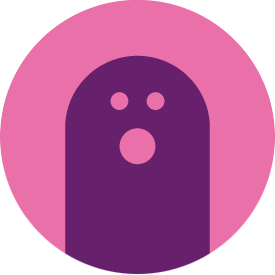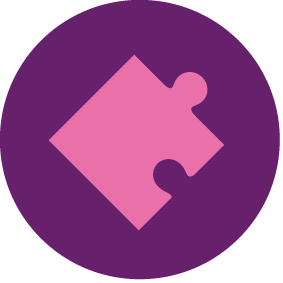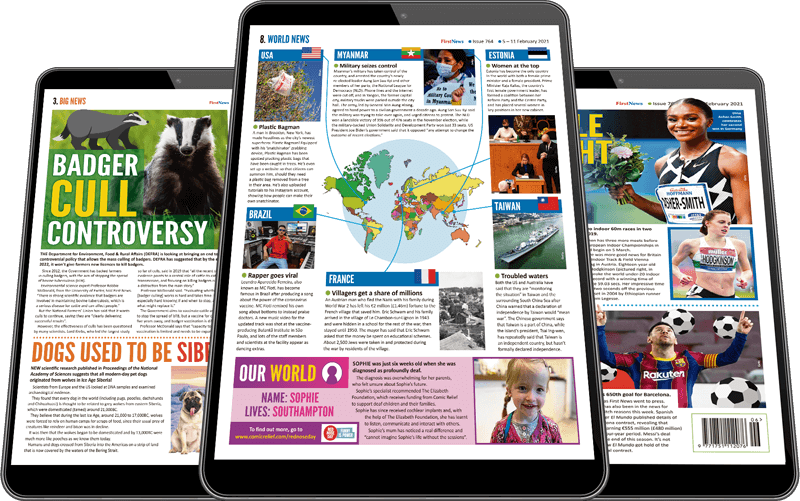
How to talk to children about Coronavirus
If you believed some of the more hysterical news reports in recent weeks, you might have been reduced to a gibbering wreck by worrying about a new virus. With lots of TERRIFYING statistics and ALARMING headlines in BOLD CAPITAL LETTERS, it must be the deadliest virus in the history of humanity and we should all be very worried, right? Well, no, not really. So with the help of some good old-fashioned actual facts and figures, let us reassure your kids (and you!) that we’re not all going to die.
But first, what is this virus?
It’s what the World Health Organization (WHO) calls a coronavirus. These belong to a large family of viruses that cause mild illnesses like the common cold, as well as more serious things like severe acute respiratory syndrome (SARS).
Coronaviruses are transmitted between animals and people, and sometimes from person to person as well. This new example, known as SARS-CoV-2, is thought to have come from a live animal market in Wuhan, China. The disease it causes is known as COVID-19.
How could this affect me?
The two things that could have a big impact on you are if you get COVID-19, or your child does. Either way, the important thing to know is that you’re legally entitled to take as much time off as you need, and your boss isn’t allowed to say no or punish you in any way, no matter how long you’re off.
The big issue is about money: will you get paid and how much are you entitled to? And will you have to take it as holiday if you stay home to look after your children?
See here for a longer look at these issues and some helpful links for more advice.
So, should you be scared?
In a word, no. Most of the deaths have involved people who were very old or already had serious health conditions, such as cancer or lung disease. The World Health Organization has said that kids aren’t affected by COVID-19 as much as adults, but they don’t know why yet.
Although the virus is spreading faster outside China than within now, it’s not all doom and gloom. This means that China’s effort to reduce the number of cases is working, through telling people to stay home, preventing large gatherings and prohibiting travel works.
First News Editor-in-Chief Nicky Cox has suggested to adults that the best way to reduce fear amongst children is to put the virus into perspective. Over the winter season, 16,000 people have died in the United States from influenza – a far greater number than those who have died from coronavirus. There is no need to panic, despite what is being suggested in some parts of the media.
If you still think the number of deaths is scary, here are some more figures to put them into context. In 2018, a total of 1,784 people were killed in traffic accidents in the UK, including 456 pedestrians. In that same year, 154 people were killed by burns. 439 were killed by alcohol poisoning. 127 died from carbon monoxide poisoning. 429 people drowned. 64 people between the ages of 5-19 died from accidental poisoning. The flu killed 1,692 people in England alone in the winter of 2018-19.
According to the Royal Society for the Prevention of Accidents (RoSPA), every year there are around 6,000 deaths in the UK as the result of an accident at home.
So we’re not trying to make light of the deaths caused by this new virus, but it’s fair to say that instead of panicking about catching COVID-19, you could probably do more good by putting your energy into driving and crossing the road more carefully, getting a carbon monoxide alarm and making sure any medicines or chemicals are out of the reach of your kids.
Although the risk to individuals in the UK of catching COVID-19 is low, the best way to protect yourself is exactly the same as for other similar illnesses, such as the common cold and the flu:
• when you cough or sneeze, do it into a tissue or your elbow, not your hands • put any used tissues into the bin immediately. Don’t put them in your pocket or leave them lying around
• wash your hands thoroughly and often, using soap and water. Wash them for at least 20 seconds, getting in between your fingers, and don’t miss the back of your hands and your nails
• carry a hand sanitiser gel so that you can clean your hands when you’re out and about or if soap and water isn’t available
• try to avoid close contact with someone who is unwell
• don’t touch your eyes, nose or mouth if you haven’t washed your hands. This is one of the most common ways that people get ill, as we don’t realise how many times we touch our face
The Government’s latest advice is subject to change, but to find out what the symptoms of COVID-19 are and what to do if you think you or a family member has it, see here
For the latest sensible advice about the coronavirus, particularly if you’ve travelled to
Wuhan in the last two weeks, click here. For more information from the WHO, click here.
By Ian Eddy.
Last updated: 13th March 2020
Help your children make sense of the headlines with First News.
Trusted by parents, loved by children and encouraged by teachers.
| £1.00* | Ongoing | |
| £62.99 | 26 weeks | |
| £114.99 | 52 weeks | |
| £1.00* | £26.04 | Save 100% | Ongoing | Direct Debit | |
| £62.99 | £112.84 | Save 44% | 26 weeks | One-off Payment | |
| £114.99 | £225.68 | Save 49% | 52 weeks | One-off Payment | |
* First 6 issues are £1.00. After the 6 issues trial the subscription will step up to £33.99 every 3 months. You can cancel at any time.
Every week in First News you’ll find:

20 Things To Know And Tell

Big News

Special Reports

Entertainment

Animal News

Science News

Crazy But True

Puzzles

Sport

